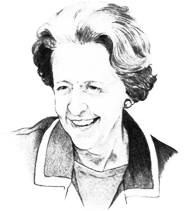A Quote by William Ralph Inge
The greatest obstacle to progress is not man's inherited pugnacity, but his incorrigible tendency to parasitism.
Related Quotes
The greatest obstacle to the welfare state is not greed but private charity that makes the welfare state irrelevant; the greatest obstacle to re-education of children in the name of the collective is allegiance to a higher power. More than that, the greatest obstacle to the state as god is an actual God above the state.
When speaking of a "body of knowledge" or of "the results of research," e.g., we tacitly assign the same cognitive status to inherited knowledge and to independently acquired knowledge. To counteract this tendency a special effort is required to transform inherited knowledge into genuine knowledge by revitalizing its original discovery, and to discriminate between the genuine and the spurious elements of what claims to be inherited knowledge.
Depending on the year or the therapist he was seeing, he'd learned to ascribe just about every facet of his character as a psychological reaction to his parents' fighting: his laziness, his overachieving, his tendency to isolate, his tendency to seduce, his hypochondria, his sense of invulnerability, his self-loathing, his narcissism.
The mainspring of creativity appears to be the same tendency which we discover so deeply as the curative force in psychotherapy, man's tendency to actualize himself, to become his potentialities. By this I mean the organic and human life, the urge to expand, extend, develop, mature - the tendency to express and activate all the capacities of the organism, or the self.
No man is an island- he is a holon. A Janus-faced entity who, looking inward, sees himself as a self-contained unique whole, looking outward as a dependent part. His self-assertive tendency is the dynamic manifestation of his unique wholeness, his autonomy and independence as a holon. Its equally universal antagonist, the integrative tendency, expresses his dependence on the larger whole to which he belongs: his 'part-ness.'.
Probably the greatest single obstacle to the progress and happiness of the American people lies in the willingness of so many men to invest their time and money in multiplying competitive industries instead of opening up new fields, and putting their money into lines of industry and development that are needed.


































